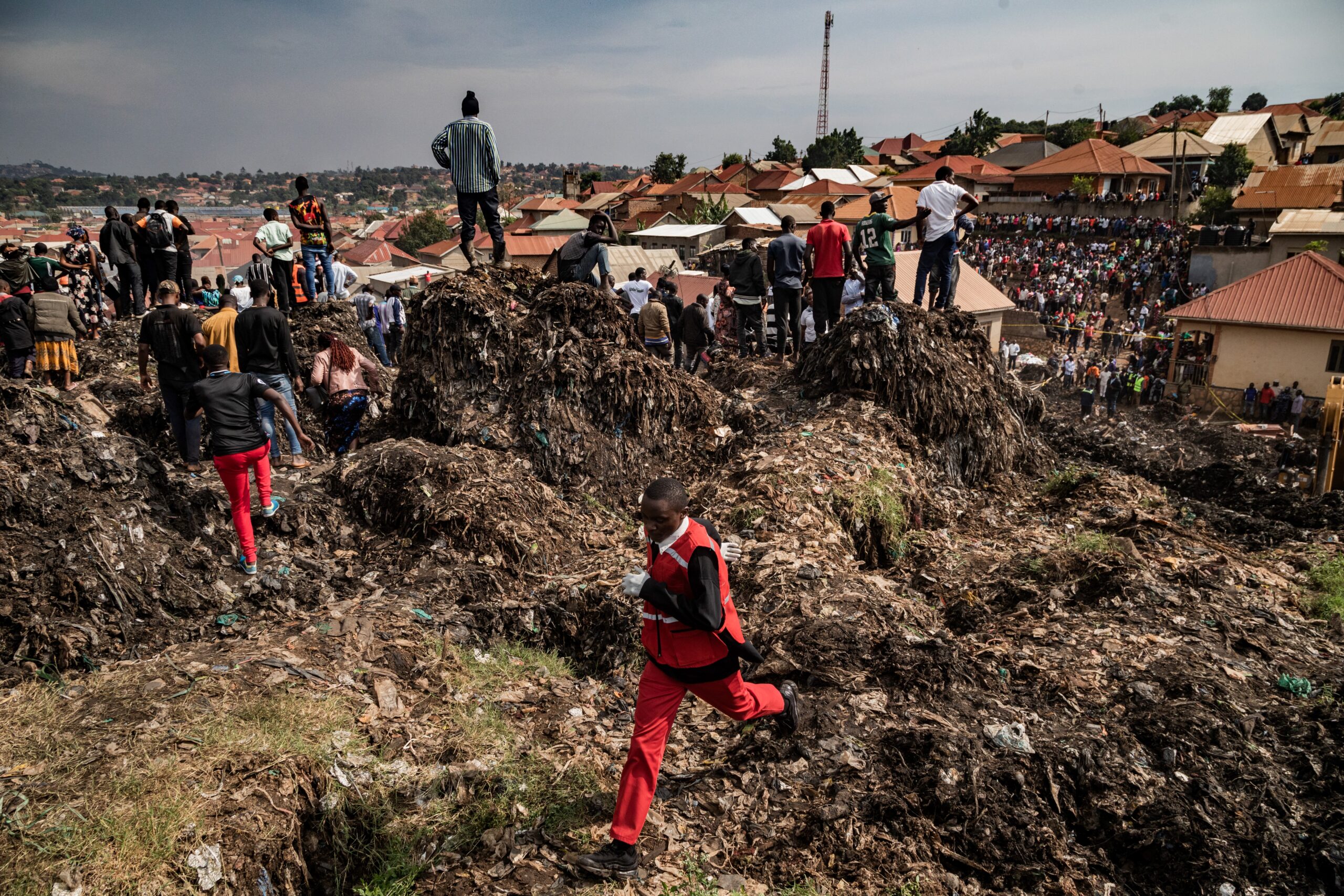Uganda garbage landslide death toll rises to 23

A Red Cross officer runs for help following a garbage landslide in Kampala on August 10, 2024. – A city official said Monday, August 12, that the death toll from the landfill collapse has risen to 23. (Photo by BADRU KATUMBA / Agence France-Presse)
KAMPALA, Uganda — The death toll from a garbage landslide in the Ugandan capital Kampala has risen to 23, a city official said Monday.
People and livestock were buried in mountains of waste at the landfill in the northern Kampala district of Kiteezi on Saturday after a collapse caused by heavy downpours.
“The latest confirmed dead [is] 23,” Kampala city authority spokesman Daniel Nuweabine told Agence France-Presse, adding that the search for survivors was still ongoing.
READ: Garbage dump landslide in Uganda kills 19
“Working with other agencies, we are assessing the situation and helping all those in distress,” he added.
Article continues after this advertisementThe area’s resident commissioner Yasin Ndide had said on Sunday that the victims included five children.
Article continues after this advertisementOver the weekend, excavators churned through the huge rubbish mounds as the desperate search for survivors was watched by wailing and weeping residents.
The incident was described as a “national disaster” by city mayor Erias Lukwago, who warned at the weekend that “many, many more could be still buried in the heap as the rescue operation is ongoing.”
He had raised concerns over hazardous risks of overflowing waste from the 36-acre (14-hectare) landfill which was established in 1996 and takes in almost all garbage collected across Kampala.
READ: Garbage dump landslide at Ethiopia kills at least 46
President Yoweri Museveni said he had directed the army’s special forces to help in the search and rescue operation and demanded to know who allowed people to live near such a “potentially hazardous and dangerous heap.”
Several areas in Uganda and other parts of East Africa have been battered by heavy rains recently, including Ethiopia, the second most populous country on the continent.
Devastating mudslides in a remote mountainous area in southern Ethiopia last month killed around 250 people.
In February 2010, mudslides in the Mount Elgon region of eastern Uganda killed more than 350 people.